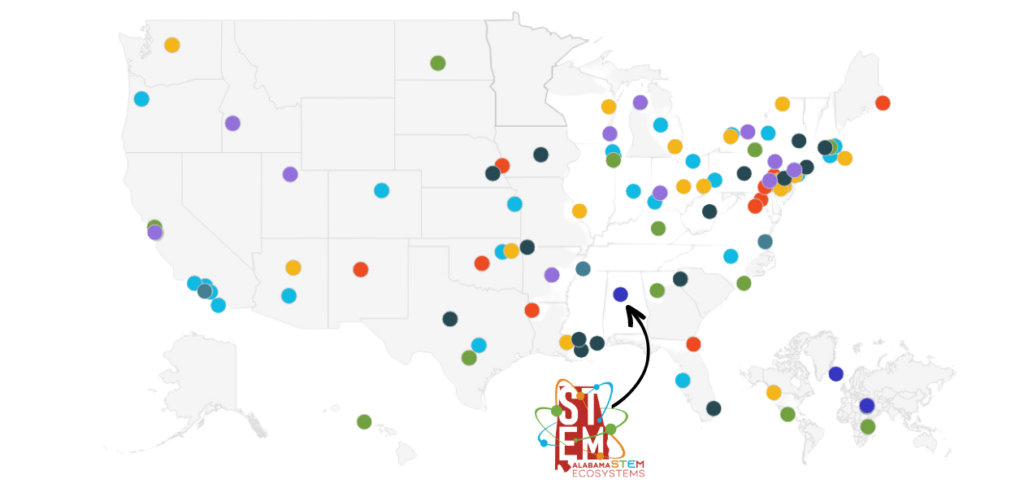STEM Ecosystems
What is the vision
Our vision is to unlock the STEM potential across every region of Alabama through collaborative efforts with stakeholders statewide. The Alabama STEM Council has developed the blueprint for our state’s STEM Ecosystems, bringing together schools, community-based organizations, after-school and summer programs, science centers, museums, and more. This effort ensures broad-reaching, high-quality STEM opportunities that engage students, educators, and communities across various fields and regions.
At the core of our vision are Design Principles that serve as the driving force, steering the efforts of these STEM Ecosystems. With an unwavering commitment to these principles, we envision a future where innovation thrives, opportunities flourish, and the potential of STEM education reaches every Alabamian.
The Alabama STEM Council is actively establishing hubs of STEM activities statewide by creating a network of interconnected STEM Learning Ecosystems (SLE) accessible to all Alabamians. These efforts ensure access to STEM resources and opportunities, developing a skilled workforce for the future.
Design Principles will guide the work of the STEM Ecosystems.
In partnership with
ECOSYSTEM
Design Principles
Define
Define and utilize common vocabulary and a shared undersetanding of the purpose of transdisciplinary STEM educationand the measures of success.
Create
Create and regularly engage groups of interdependent, cross-sector STEM stakeholders
Identify
Identify and eliminate obstacles that hinder students' and educators' connection to STEM, fostering a culturally relevant environment that supports accessible and meaningful STEM learning for everyone.
Champion
Champion students' STEM competence, self-efficacy, and voice.
Support
Support and invest in world-class, transdisciplinary STEM educators and STEM educator supports and programs
Make
Make authentic connections between informal and formal STEM learning environments
Promote
Promote economic development through strong STEM workforce development, alignment with evolving industry needs, and local to global business industry connections
Prioritize
Prioritize data-driven decision-making to ensure actions and systems are being measured, evaluated, and iterated
Establish
Establish clear Alabama STEM Ecosystem operations including processes, resources, leadership, accountability, and sustainability
For more information about Overall STEM Learning Incentives, contact:
Rene McNeal
STEM Learning Ecosystem Coordinator
rene.mcneal@alabamastemcouncil.org
Bernadette Forrest
Ties Consultant
bbforrest.alstem@gmail.com


Alabama STEM Ecosystems is one of several state participants throughout the country. Individuals who are interested in learning more about STEM Ecosystems can visit the National STEM Ecosystems page at https://stemecosystems.org.

